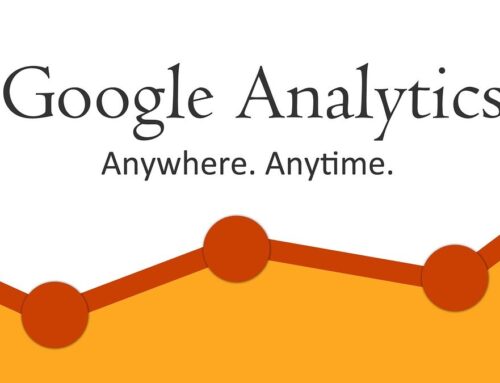
5 Best and Most Popular CMS Platforms
Author : Hardeep Singh
April 18, 2024
If you want to easily create a website without knowing any code then there is a lot of CMS (Content Management System) platform allows creating a website without knowing any code.
In this article, I will let you know why it is so important to choose the right CMS platform for your website. We will also share our top selections for the best CMS platforms along with comparisons.
What is a CMS platform?
If you want to build a website without a CMS platform then you have to learn HTML, JavaScript, or CSS programming languages and write a lot of code, The CMS platform allowing you to easily manage your content and create a website
How to choose the best CMS platform?
There are lots of different CMS platforms. Before you jump in comparison to our CMS platform, here you should look for a good CMS.
- Ease of use
You should choose a CMS that makes it easy for you to create and edit content. This often means a drag and drop interface, allowing you to add various elements to your pages.
After publishing it, it should be quick and simple to make changes to the content on your site.
- Design options
Your CMS software should offer a lot of website design templates for you to choose from. It also allows you to easily customize the designs to your needs (ideally without writing code).
- Data portability
A great CMS platform should have the tools to easily export your data and take it elsewhere.
For example, you can later decide to choose a different platform or a different hosting company. Data portability makes it easy for you to move around with complete freedom.
- Extensions and Addons
Not all websites are the same. This is why it is impossible for any CMS platform to come up with all the features that will meet the requirements for every website.
Extensions and addons fix that problem. These are different software that you can install on your CMS software just to expand your features and add new ones when needed. Think of them as an app for your CMS platform.
- Help and Support Options
Although the CMS platform aims to make the website as simple as possible, you may still have some questions. Find out if support and support is available if you get stuck.
Some CMS providers have a handful of FAQs and a customer service team that may respond to us. Others will have a large supportive community that can help you at any time of the day or night.
How much does it cost?
Some CMS platforms are completely free. Others charge monthly fees. Even with free CMS platforms, you will often have to pay for third-party extensions, design, and/or web hosting services.
Try to find out as much as possible about pricing before choosing your CMS, so that you don’t get any nasty surprises.
1. WordPress.org
WordPress.org is the best CMS platform. It is the most popular CMS software in the world, and it empowers about 35% of all websites on the Internet.
It is important not to confuse WordPress.org with WordPress.com. WordPress.org is a free open-source CMS originally designed for blogging but is now used by all types of websites / online stores. WordPress.com is a blog hosting platform.
If you are not sure of the difference between the two, do a detailed comparison of WordPress.org and WordPress.com.
- When we talk about WordPress on WPBeginner, it means WordPress.org. We specify WordPress.com where appropriate.
The pros
- WordPress gives you the convenience and freedom to create any kind of website (online store, auction site, membership site, etc.).
- You don’t have to learn any technical skills or coding knowledge for this.
- You have complete freedom to earn money online from your website in any way.
- There are thousands of WordPress themes and plugins that allow you to add all kinds of useful extras to your sites, such as contact forms, photo galleries, and more.
- It is really well designed for search engine optimization (SEO). On WordPress Creating SEO-friendly URLs, categories, and tags for your posts is easy. You can also choose from a lot of SEO plugins to help you do more.
- There is a huge and supportive community around WordPress, as it is an open-source CMS. You can join groups such as WPBeginner Engage Facebook Groups to help run through any issues.
- WordPress provides a lot of detail making it an ideal CMS platform for both beginners and developers.
- WordPress lets you download all your content in XML format, if you choose to do so it becomes easier to move to a different system in the future.
Cons
- You have to set your hosting and domain name, and you will be responsible for managing things like security and backup.
Price
WordPress in itself does not cost anything. However, you need a domain name (about $ 9 – $ 15 per year) and a hosting account with a web host that can run WordPress (normally $ 7.99 / month).
We have a special deal with Bluehost where you can get WordPress hosting for only $ 2.75 / month which includes a free domain and free SSL.
If you need some help getting your WordPress site started, see our guide on how to create a website with step-by-step instructions.
2. Joomla
Joomla is Another popular free open-source CMS platform is one that comes with various templates and extensions. It is free to use, but you will need hosting and a domain name.
It was first released in 2005, so like WordPress, it has been running for years. Joomla is loaded with features, and many web hosts offer 1 click installation. However, it is actually an ideal CMS platform for developers and experienced website builders, so it is not such a good option for beginners.
The pros
- Joomla gives you lots of flexibility and lots of options. If you are building something complicated or bespoke then this is a good option.
- Although Joomla is particularly useful for developers, you can still use it whenever you never want to touch a single line of code. Editing your content is easy.
- Joomla is open-source, and there is a lot of community support available if you get stuck.
- You can use Joomla to run an e-commerce store as extensions are available for it.
Cons
- Even Joomla fans will admit that it can be very complicated. Depending on what you want to do with it, you may need to appoint a developer to help you well.
- There are not many options for additional extensions. If you use a CMS like WordPress, which has thousands of available themes and plugins that extend core functionality, you may be disappointed with Joomla.
- If you have a lot of different extensions and modules installed, there may be some compatibility issues.
Price
Joomla itself is free, although you need to pay for a domain name and web hosting that supports Joomla. SiteGround is a good option here, as they have specific Joomla hosting plans with lots of useful features.
You can pay for some extensions to add more functionality to your website.
3. Drupal
Drupal is an open-source CMS platform. It is the CMS behind some major websites, including The Economist’s site and several university sites.
Drupal is a good option for developers, or for those able to hire a developer. This is especially good if you aim to create a highly optimized site that needs to handle a lot of data.
You can host a Drupal site on SiteGround. They provide free installation and can even help you move an existing Drupal site.
The Pros
- It is easy to add content to Drupal. Custom content types are flexible and provide a lot of options.
- There are many different modules available that you can add to your site (these work like WordPress plugins).
- It’sUser management is easy, with a built-in system where you can create new roles.
Cons
- With Drupal, it can be difficult to figure out how to change the appearance of your site or add extras. It is certainly not as friendly to beginners as WordPress.
4. WooCommerce
It is the most popular and best eCommerce platform in the world. It is really flexible and easy to manage.WooCommerce is not technically a CMS platform by itself. Instead, it runs as a plugin on WordPress, so you’ll need WordPress on your site to install WooCommerce.
According to W3Tech, if it was a CMS platform, it has a market share of 5.8%. Its usage is the percentage of all websites in the world.
The pros
- WooCommerce is available as free software, but you will need WooCommerce hosting and a domain name to get started.
- There are a lot of WooCommerce themes available, which make it easy to get your site really easy how you want it.
- WooCommerce has a lot of available extensions (known as WooCommerce plugins) that allow you to add additional functionality to your site.
- Through WooCommerce you can manage your inventory completely, making it easy to keep track of the things you have in stock.
- WooCommerce comes with PayPal and Striped Payments by default. You can also add any other payment gateway through extensions and add-ons.
Cons
- WooCommerce has a lot of different options, which can be a bit daunting when new to setting up a website.
- WooCommerce technically works with any WordPress theme, but you may want to stick with themes specifically built for WooCommerce for extended support.
Price
The WooCommerce plugin itself is free, but you may have to pay for additional plugins and extensions for your online store.
You also have to pay for the domain name and web hosting account. Bluehost is a great web host to pick up as they will set up a WooCommerce and Storefront theme for your site for you.
5. Wix
Wix is a popular CMS platform, although it has some limitations. We often ask readers how to switch from Wix to WordPress, as every smart business owner knows that WordPress is definitely better than Wix.
With that, the Wix is beginner-friendly and may be worth considering. It also offers a free plan.
The pros
- Its drag and drop interface makes it really easy to create pages that look just how you want.
- In Wix, you can choose a lot of pre-made templates. They are fully responsive, so they look great on mobiles and computers.
- You can add a lot of apps from your site to the Wix App Market. They work like WordPress plugins to give new features to your site.
Cons
- Once you select a template on Wix, you cannot change it to a different one. This can mean that you are stuck with a layout that is not quite right for your site.
- You cannot run an eCommerce store on Wix until you upgrade to a paid plan, and even then, you can only accept payments using PayPal or Authorize.net.
- Wix does not allow you to easily download your data and export it. You can download your blog posts (though not your images) to transfer them, but if there are any pages on your site, you will have to copy and paste them manually.
- If you are using the free plan, you will have a Wix-branded domain name and advertisements on your site. Ads make money for Wix, not you.
Price
If you are happy with the Wix-branded domain name and the ads running on your site, you can use Wix for free. Paid plans offer more flexibility and start at $ 13 per month (advance payment annually).
If you want to take payment online, you will have to pay $ 23 / month or more (again, annually).











